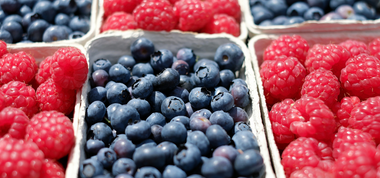Could Step One Foods help you live longer?

People in one of the poorest parts of Costa Rica regularly achieve centenarian status. Meanwhile, Americans barely make it past 77 years of age on average.
If you’re a regular reader of this blog you know I repeatedly call out the Blue Zones like Nicoya, Costa Rica, for their exceptional health statistics. You’ve also seen me write about the importance of telomere length.
What does any of this have to do with Step One Foods? Or shoe laces for that matter?
Well, a study of nearly 6000 people showed that eating more fiber-rich foods was associated with longer telomeres. Telomeres are bits of DNA that form the ends of chromosomes. And chromosomes are thread-like structures of DNA that contain all our genetic information. Telomeres protect our chormosomes; think of them as the tips of shoelaces that keep them from fraying. When cells divide, telomeres progressively shorten, eventually wearing away leading to chromosomal fraying and cell death.
So the longer the telomeres, the longer a cell can live.
In other words, if you want to be “younger" next year, making sure fiber is a big part of your diet - so your telomeres shorten less rapidly - is one way to achieve that. In fact, the study calculated that adding 10 grams of fiber for every 1,000-calories consumed could reduce biologic aging by 4.3 years!
But simply adding a fiber supplement would not be expected to do the trick. Other aspects of whole food, plant-based diets, are also believed to be beneficial to telomeres, including eating less saturated fat. In other words, downing a glass of Metamucil with your steak is unlikely to have the same impact as getting the equivalent amount of fiber from beans or lentils - or Anytime Sprinkle.
The study of telomeres is in its infancy, and researchers don’t yet understand exactly how fiber might protect telomeres. However, everything else we know about fiber suggests that we should be eating far more of it. Most Americans don’t take in nearly enough, despite the benefits, ranging from reducing bad cholesterol to helping you feel full and helping balance blood sugar levels. Not to mention stimulating your gut microbiome to produce GLP-1 so your appetite is suppressed and you lose weight.
So, what’s the best way to add more fiber? If you’re enjoying an exclusively whole food, plant-based diet already, you’re probably getting plenty. But if you're like the rest of us, you'll want to double-down on fiber-rich foods. Here are some that will boost your fiber intake:
- An apple - 4.5 grams
- Blueberries - 4 grams in one cup
- Blackberries - 8 grams in one cup
- Green peas - 7 grams in one cup
- Edamame - 5 grams in one cup
- An avocado - 12 grams
- Walnuts - 5 grams in one cup
- Macadamia nuts - 12 grams in one cup
- Flax seeds - 2.8 grams in one tablespoon
- Chia seeds - 5 grams in one tablespoon
- Dark Chocolate Walnut Bar - 5 grams per bar
- Oats and Walnut Pancakes - 6 grams in one serving
- Anytime Sprinkle - 5 grams in one packet
Living longer never tasted so good!

Tested & Proven Results.
- Cardiologist formulated
- Supported by over 500 publications
- Clinically-proven, in a double-blind randomized trial with Mayo Clinic and The University of Manitoba
80% of participants lowered their cholesterol in just 30 days. With just two servings per day, Step One Foods offers a proven-effective way to naturally lower LDL (bad) cholesterol.
Get heart health tips and articles like this, delivered right to your email.
New articles every week.
You may also like...

Spring Into Heart Health: The Best Seasonal Foods to Eat Now

You don’t need to avoid foods with cholesterol…except for these



